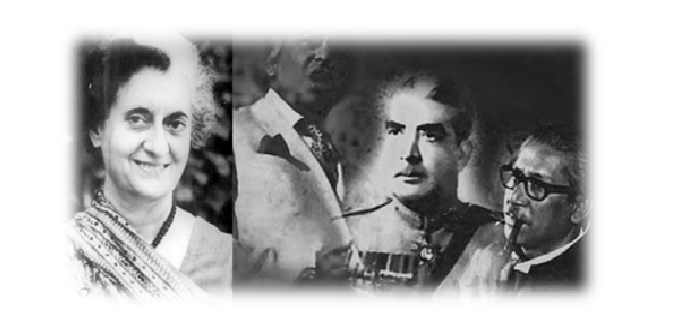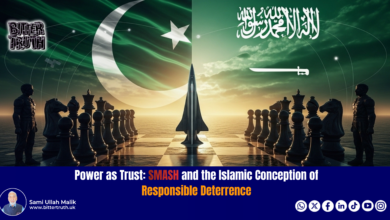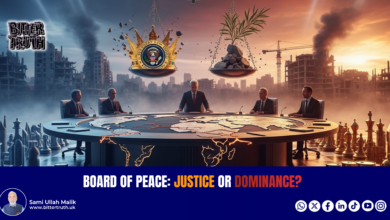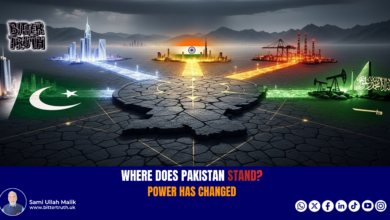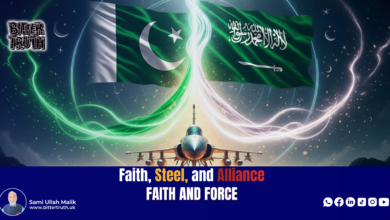The Tryca and Pakistan’s Possible Elections
In order to understand the process of India’s intervention in the internal affairs of Pakistan, it is necessary to study its exact historical background. The real reason for India’s hatred against Pakistan was the failure of the Congress leadership’s efforts to keep India united. For Hindus, the creation of Pakistan was actually like tearing apart Bharat Mata. That is why he never wholeheartedly accepted the idea of partition of India. The dream of “Akhand Bharat” has always been their collective ideal. Therefore, the crisis of 1971 in Pakistan gave India a better opportunity to fulfil this long-standing desire. India was sure that such an opportunity would not come again. Therefore, to take advantage of this situation, India rejected all Muslim values.
The reality is that India accepted partition with the hope that the fledgling state of Pakistan would not be able to cope with the situation and would die within a short period of time. Jawaharlal Nehru said that the creation of Pakistan was a temporary measure and would eventually lead to a united India. Talking to Joseph Karbal, he said that Pakistan is a medieval state with an unworkable religious ideology. There will come a time when this accession with India will become necessary. The All-India Congress Committee expressed similar sentiments in its resolution on June 14, 1947, and said that India has been shaped by its geography, mountains and seas and no human effort can change its character, nor its ultimate destination. can get in the way. The map of India, the land of our dreams, will live forever in our hearts and minds. The All-India Congress Committee sincerely believes that when this storm of sentiment subsides, the problem of India will be seen in its proper context and the false doctrine of two nations will find no supporter. All India Congress Committee This resolution has always cast a shadow on the behaviour of the Indian leaders of Pakistan. Speaking on this resolution, Maulana Abul Kalam Azad said that only the map of India has been affected by the process of partition, people’s hearts have not been divided, and I am sure that This division will prove to be temporary. Gandhi said: Congress was anti-Pakistan and is one of those who staunchly opposed the partition of India.
India reacted immediately to the military operation in East Pakistan and the arrest of Sheikh Mujibur Rahman. Indians were happy that their enemy Pakistan was suffering. On March 27, when Indian Prime Minister Indira Gandhi officially expressed her sympathy to the Bengalis, not a single Bengali migrant had crossed the border and reached India. Indira Gandhi’s speech in the Lok Sabha and Rajya Sabha on March 27 expressed the ambitions and sentiments behind the Indian intervention. He said: “The situation has changed in East Bengal, we have welcomed the new situation, we are constantly monitoring the situation and we have been in touch as much as possible, honourable members understand very well. That it is not possible for the government to say more than that on this occasion. I would like to assure those honourable members who have questioned whether decisions will be taken in time, that this is the most important thing for us at this time. Our reaction at this stage should not be merely theoretical.” In East Bengal. Expressing his deep interest, he expressed that the Indian government will not shy away from taking practical steps at the appropriate time. In time, Indira Gandhi proved her words to be true.
After partition, the Indian government had to restore the integrity and unity of Pakistan. In 1971, the different conditions of East Pakistan provided the golden opportunity that India had been waiting for years. Analysing India’s attitude towards Pakistan, Member of Indian Parliament Subramani Swamy wrote that an objective study of the situation would show that India has not torn Pakistan into pieces to deal with the refugee problem. This is an absurd concept. India started the war against Pakistan on the basis of nationalist rhetoric and the rational view that the partition of Pakistan was in India’s long-term interest. India also succeeded in outdoing Pakistan on the propaganda front. It took full advantage of the situation and presented itself as the saviour of Bengalis with the help of the foreign press. Apart from India’s better propaganda machinery, other factors also hampered Pakistan’s efforts to present its position successfully. Some of these factors were:
(1) India was the largest Asian democratic country while Pakistan had a military regime.
(2) The Zionist lobby, which controls a large part of the media in the West, openly supported India. Tel Aviv (Israel) sent a message to its followers living in the Western world to provide moral and material support to the Bengali separatists (Indian Created Mukti Bahni) and to cooperate with India in this regard.
(3) Spread general aversion to military action to solve political problems
(4) Awami League leaders’ personal meetings with foreign correspondents and above all the unwise treatment of foreign correspondents by the military government and the order by the military administration of Dhaka to leave the city.
The personal resentment and anger of foreign correspondents can be clearly seen in their exaggerated reporting of military operations. General Tikka Khan was not wrong to say that even today the world thinks that the beginning was made by us, it is a serious joke with history. However, Mujibur Rahman wanted a show of force, which resulted in the Bengali death toll in the resulting conflict being overestimated by a thousand percent and sometimes even more. Mujibur Rahman’s lie that 220,000 incidents of humiliation occurred during the military operation, while according to a Roman Catholic organization, which the newspapers did not consider appropriate, this number was 2,000, and in this terrible process, the Hindu members of the Mukti Bahni themselves. The number was more. A few members of this organization prepared this report after personally interviewing these affected women. After the military action, public sentiments were so badly inflamed that the Awami League’s propaganda machinery suppressed truth and authenticity. After this storm of emotions subsided, foreign newspapers began to publish refuting reports about the exaggerated number of dead in East Pakistan. One such report says, “I have made a detailed visit to Bangladesh and after numerous meetings with the people and rural workers, I have come to the conclusion that the claim of three million deaths is absurd and exaggerated”.
Bangladesh’s Ministry of Interior investigated in March when citizens provided reports of nearly 2,000 deaths at the hands of the Pakistani army, which after further independent investigation confirmed 922.
In May 1971, Subramaniam, director of the Indian Institute of Défense Studies, presented the view that “rather than harbouring millions of refugees indefinitely, it would be better from an economic point of view to resolve the Bangladesh issue through war.” said that East Pakistan will not be able to resist for long. He also predicted that Indian industries would not be affected during the Indo-Pak war and that a war solution to the Bangladesh issue was not beyond India’s capabilities. He also predicted that China would not intervene in the aftermath of the India-Pakistan war. He expressed confidence that Pakistan’s military government would prefer defeat at the hands of India to a political compromise with Mujibur Rahman. However, he warned India of the possibility of a sudden Pakistani attack on the western front. These views of Subra Menem were well received in the government circles of India and many decisions taken in New Delhi were influenced by these views.
Many writings and speeches by Indian leaders refute India’s claim that its attack on East Pakistan was aimed at helping the suffering people. In a closed-door seminar on the subject of Bangladesh, Jayaprakash Narayanan revealed that “India did not take the decision to intervene for the freedom of East Pakistan as a divine intervention, but the only motive behind this decision was our national interest.” It is obvious that the Indian propaganda about the death of Bengalis and their struggle and the drama of showing sympathy to the immigrants was just created for the attack on East Pakistan. “The Times (London) correctly wrote that from March Indian intervention continued to increase slowly but steadily until the military invasion in November 1971. India had already prepared a plan to attack East Pakistan. Kuldeep Nair has confirmed that India intended to attack Pakistan in May-June, but the Chief of Staff advised that in East Bengal A large-scale military operation would be inappropriate because of the monsoons. In his view, “winter would be the best time for this purpose”. Kuldeep Nair further revealed that “In fact, India invaded East Pakistan soon after the creation of Pakistan”. A fortnight’s occupation plan was prepared. This was the plan which is now being implemented in accordance with the modern requirements.
The fact is that long before the war, Indian soldiers dressed in plain clothes were seen around Dhaka. Later, Mrs. Gandhi herself said in her statement that “the training of guerillas and the provision of Indian weapons to them is the reason for the breakup of Pakistan.” It is a golden opportunity.” And the solution is “nothing but an independent Bangladesh.” More surprising are the revelations of a Bengali Hindu journalist, S. Barata, who says that the Mukti Bahmani was actually an organization of Indian soldiers and that “If he had said this while in India, he would have been arrested.”
There is clear evidence that the Mukti Bahni was largely, if not all, composed of Indian soldiers. The comment of Times (London) was absolutely right that “arms supply from India stopped after the military action.” Now India’s next move was to send saboteurs to East Pakistan to sabotage the means of communication and encourage the rebels to hinder the action of the Pakistan Army. Initially, India provided arms and ammunition to the Mukti Bahni. But when it became clear that the Mukti Bahni was not able to achieve the stated objectives, the Indian Army also jumped into the fray.
“The Telegraph” said in a news published in April that “Informants say that a train full of Indian weapons has reached the separatists near Madarpur. According to a foreign newspaper, “India has Checkpoints were established along the eastern border, through which Indian arms were transported to East Pakistan. “Several other reports confirmed that India was directly supplying arms to the subversives.” The centers were mostly in the East Bengal Regiment and the East Pakistan Rifles. Volunteers were also recruited from among the students, especially the Hindu youth who wanted to join the Mukti Bahni Army, whose main objective was to carry out acts of sabotage. Training was given in more than fifty training centers established by the Indian Army. In relation to Indian soldiers, they made the interior areas of East Pakistan the centre of their subversive activities. Apart from sheltering Mukti Bahni’s hideouts, India also arranged for the training of its volunteers. It provided them with cannons and Mortar fire was also provided.
In the opinion of a better soldier, Dhaka’s debt could have been paid off in Srinagar, and in this regard, Pakistan also got many rare opportunities, but due to lack of political strength and ideological disunity, these important opportunities were wasted. gone. It would have been fine if the situation had remained even here, but the irony is that the country which divided Pakistan into two parts has played the chords of friendship with it, whose endless threads are making every Kashmiri uneasy today. Pakistan’s political and military elite certainly do not have a satisfactory answer to the question why they did not take advantage of the rare opportunities provided by nature to account for the fall of Dhaka. Whether we hold anyone responsible or not, history will surely mention those who avoided paying the debt of the East Pakistan tragedy even when given the opportunity.
On whose hands should I find my blood?
The whole town is wearing gloves.

